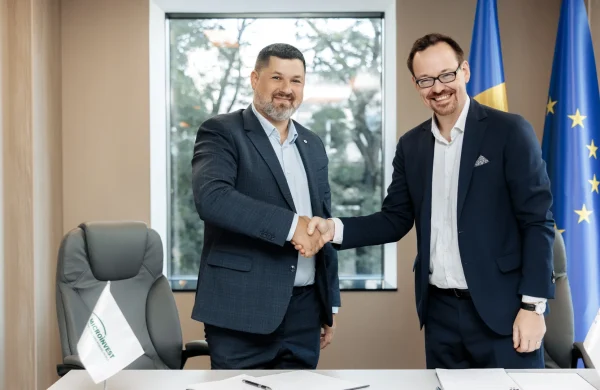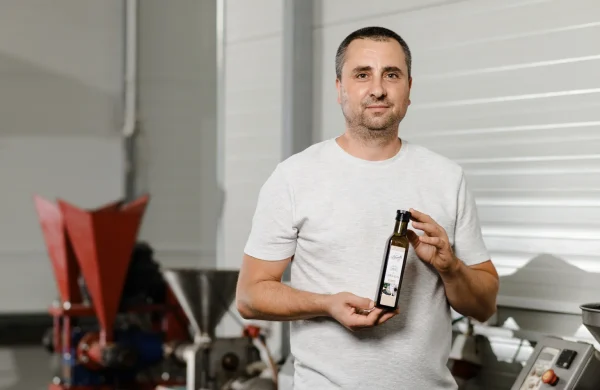Whether you are an entrepreneur or an individual, investing is an important step in managing your budget. You can save up for a long time to eventually make an important purchase for yourself or your business with your own capital, or you can use borrowed capital, simply put, loans, and reach your goals when the time comes. Both strategies have their advantages and disadvantages, but for both, business and family budgets, the secret is to make financing decisions with the proper information.
At Microinvest, in addition to providing financial services, we strive to contribute to the financial education of society as a whole. Every year, we participate in international campaigns aimed at raising public awareness of the importance of proper money management, one of them being Global Money Week, a campaign that takes place simultaneously in more than 160 countries around the world. This year, together with our colleague Daniela Crețu, Branch Coordinator, we decided to touch upon the topic of responsible lending for business and personal needs.
Daniela, you have been a part of the Microinvest team for more than 7 years. In the beginning, you were a Loan Expert, and then you were promoted to Coordinator. How has your perspective on lending and investing evolved during this time?
Before joining Microinvest, the topic of loan was taboo for me. Neither I nor my family had loans, but I often heard that they should be avoided. Unfortunately, for some people, due to negative experiences or lack of information, taking out a loan always means getting into trouble. When in reality it can be quite different. At Microinvest, my attitude towards lending has changed dramatically. While I was still a student, I applied for the Induction Program for Loan Experts. It was during this program that I began to understand what responsible lending is and the real purpose of the loans offered by Microinvest. I understood why it is important to have a good credit history, to be able to objectively assess your ability to pay, what the loan is and how it is calculated, and most importantly, how to manage it properly.
How important are loans in everyday life? And when it comes to entrepreneurship?
There is no doubt that loans are very important, especially for businesses. Throughout my 7 years of work, I have had the opportunity to interact with many entrepreneurs and individuals who utilize loans as an effective tool to achieve their goals. In everyday life, there are things that we may need immediately but would take years to save up for, such as a house, a car, repairs, equipment, and more. A well-considered loan, matched correctly to monthly income, can help improve living conditions for a family today by allowing gradual repayment. In business, borrowed capital is essential for growth: it can be invested in working capital, equipment, or other investments that accelerate growth significantly. This is particularly crucial for businesses. The key is to be well-informed before applying for a loan.
What should you pay attention to when choosing a loan? Tell us briefly about the meaning of the most important financial terms in the loan agreement.
The first thing to think about before applying for a loan is whether you can afford it. It sounds abstract, but loan is a responsibility that can only benefit you if you manage it properly. Of course, the most important loan term is the interest rate, and not just any interest rate, but the EIR – the effective interest rate. Even if it seems complicated, at Microinvest we always explain every component of the loan to our clients, so that they clearly know what they are paying and how much they are paying. Another important term in lending is collateral. Not all loans require collateral. For example, at Microinvest individuals can get a loan up to 300,000 MDL without collateral, while for entrepreneurs the maximum amount without collateral is up to 3,500,000 MDL. The client should realize that collateral entails additional expenses and requires the collection of several documents from different sources, which makes the lending process slower and less comfortable. I would like to mention that attention should be paid to the currency in which the loan is granted. Often clients are not aware of the currency risk. It is better to take a loan in the currency in which you earn your income, to make it easier to pay and avoid the risk of exchange rate changes.
What is Microinvest’s approach to community financial education?
Microinvest is the only financial institution in Moldova that has the international GOLD certificate in the field of client protection. For us, this certificate is not just a mention, but a mission. Even if not all clients realize it, there are situations when refusal to grant a loan is the most correct and objective decision for both parties at that moment. Our cooperation with clients is transparent. Loan Experts communicate directly with each client, conduct a detailed financial analysis of the business, explain each stage in detail, so that the lending decision made has a positive impact on the business. Microinvest also regularly organizes events about financial education for children, youth, clients, partners and entrepreneurs. In my experience, modern society is moving in the right direction, our clients, both individuals and legal entities, are becoming more and more aware, making informed decisions, understanding the ins and outs of lending, and realizing that both credit history and purpose are important for getting a loan. Most importantly, I am proud that we are making a direct contribution to the financial education of our clients and society as a whole.
Besides being a Branch Coordinator, you’re also a young mom. When and how should parents start talking to their children about money? How do you involve them in managing the family budget?
Financial education should start, first of all, at home, as soon as the child begins to understand that each family member has certain needs that can be met by buying certain goods. For this to happen, we adults must first of all be financially literate ourselves and foster this sense of responsibility in our children. I do this with my young son: every time he asks me to buy something, I give him a certain amount of money and explain how to distribute it – how much can be spent on current desires, how much to put aside for a future big purchase, for example, an expensive toy, and how much should be put aside for savings. When the children grow up, we will also explain what a loan is, why a large amount of money is taken, and that it is important to set aside a certain reserve every month to repay it. Most importantly, children should understand the value of money, that it is not just a piece of paper, but a resource acquired as a result of labor. This should be discussed both at home and at school, because only in this way children will grow up to be responsible adults who realize their actions and their impact on their lives and its quality.










